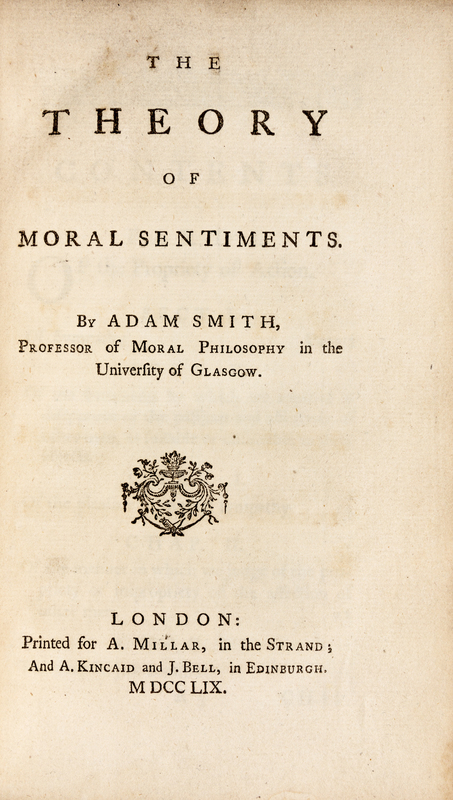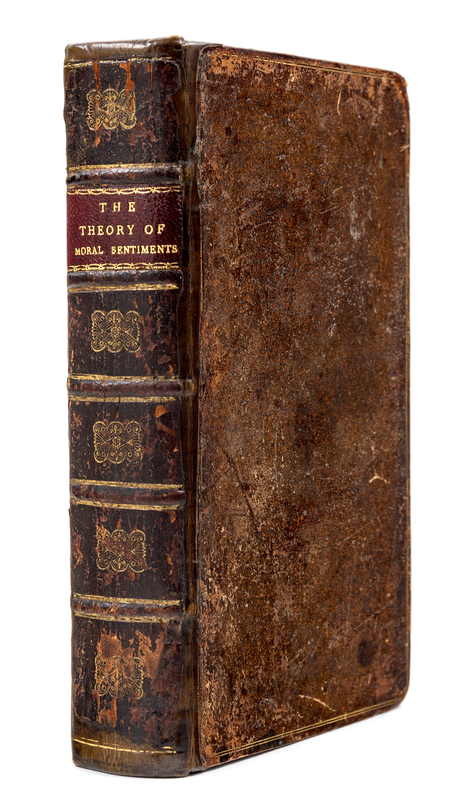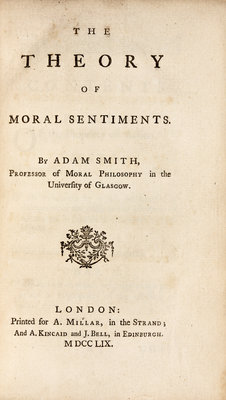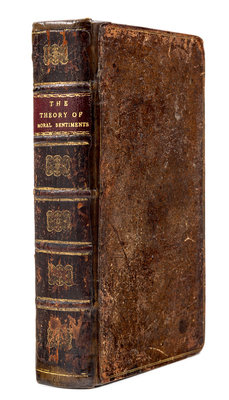Condition Report
Contact Information
Lot 79
SMITH, Adam (1723-1790). The Theory of Moral Sentiments. London: Printed for A. Millar, in the Strand; And A. Kincaid and J. Bell, in Edinburgh, 1759. FIRST EDITION.
Sale 714 - Library of a Midwestern Collector
Nov 5, 2019
10:00AM CT
Live / Chicago
Own a similar item?
Estimate
$18,000 -
25,000
Price Realized
$47,500
Sold prices are inclusive of Buyer’s Premium
Lot Description
SMITH, Adam (1723-1790). The Theory of Moral Sentiments. London: Printed for A. Millar, in the Strand; And A. Kincaid and J. Bell, in Edinburgh, 1759.
8vo (199 x 122mm). With half-title and errata at end. (Occasional minor light foxing.) Contemporary calf (rebacked preserving original backstrip, later spine label); quarter morocco folding case. Provenance: George Goyder (bookplate; sold Christie’s London 26 November 1997, lot 146).
FIRST EDITION OF THE AUTHOR'S RARE FIRST BOOK, which established his reputation immediately upon publication.
Smith’s Theory of Moral Sentiments laid the foundation on which The Wealth of Nations was later to be built and proposed the theory which would be repeated in the later work: that self-seeking men are often “led by an invisible hand… without knowing it, without intending it, to advance the interest of the society.” “The fruit of his Glasgow years… The Theory of Moral Sentiments would be enough to assure the author a respected place among Scottish moral philosophers, and Smith himself ranked it above the Wealth of Nations…. Its central idea is the concept, closely related to conscience, of the impartial spectator who helps man to distinguish right from wrong. For the same purpose, Immanuel Kant invented the categorical imperative and Sigmund Freud the superego” (Niehans, 62). With Moral Sentiments and Wealth of Nations, Smith created “not merely a treatise on moral philosophy and a treatise on economics, but a complete moral and political philosophy, in which the two elements of history and theory were to be closely conjoined” (Palgrave). Published in London in April 1759 with a recorded “print run of 1,000 copies” (Sher, “Early Editions of Adam’s Smith’s Books,” 13). ESTC T141578; Goldsmiths 9537; Kress 5815; Palgrave III, pp. 412-13.



